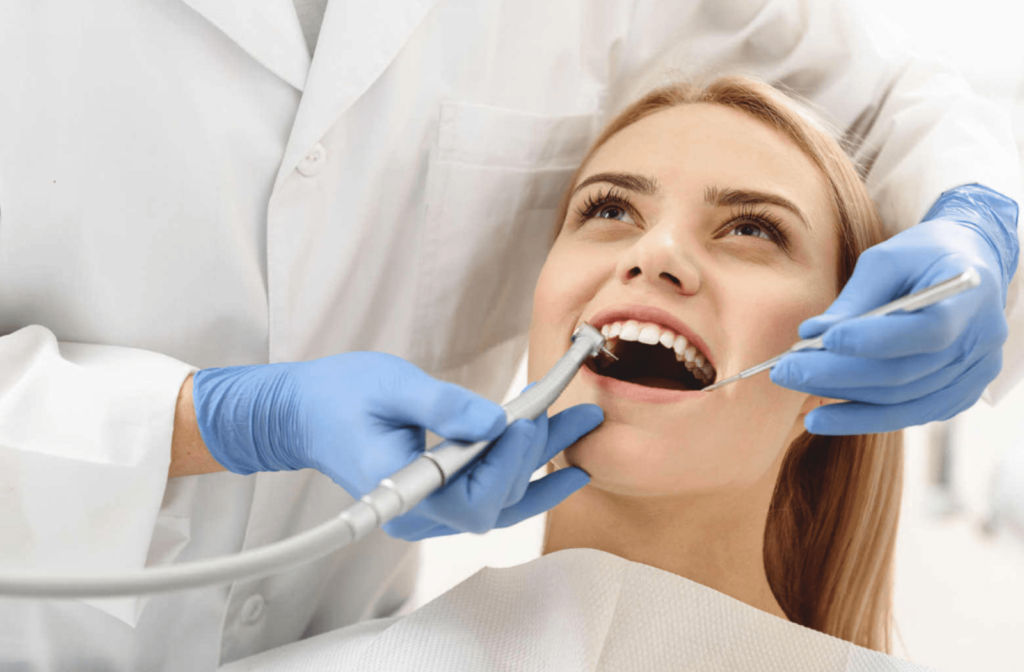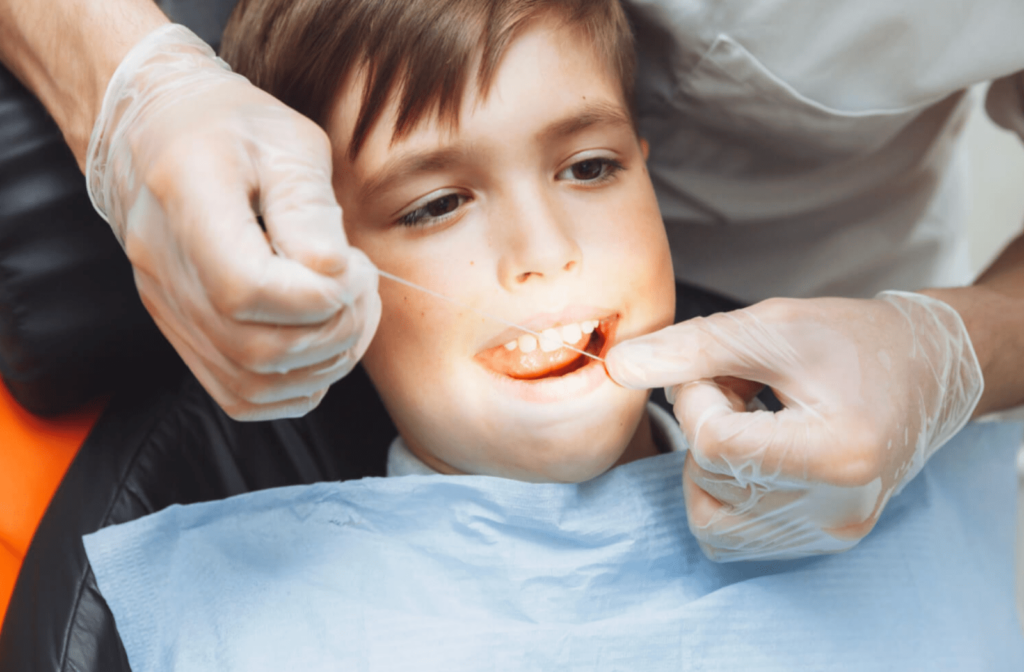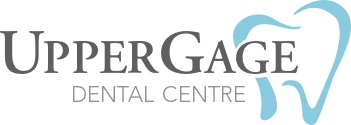Dental hygiene is integral to overall health, and regular teeth cleaning appointments are necessary to maintain healthy teeth. In most cases, teeth cleaning appointments are relatively short, taking between 30 to 60 minutes, depending on your situation.
The more frequently you visit your dentist, the shorter the appointment may be, and potential oral health issues could be detected and treated quickly. And, of course, you get the joy of clean and fresh teeth!
What Is a Teeth Cleaning?
A trip to the dentist doesn’t have to be a daunting experience for you or your family. You might hear a teeth cleaning be called dental prophylaxis, which simply refers to the process of removing plaque and tartar build-up from teeth. It can help to prevent cavities, gum disease, and other dental issues. Experts generally recommend dental cleanings every 6 months to maintain good oral health.
Of course, you’re brushing and flossing regularly, but plaque can still accumulate in hard-to-reach spots. In time, plaque can harden into tartar, which is so tough that you’ll probably need professional help to clean it off.
Teeth cleaning typically takes 30 minutes to 1 hour but could be longer if you haven’t had a cleaning in a long time or have complicated oral health issues. It’s also typically paired with a dental exam. So, while your hygienist scrubs your teeth, they’re also looking for trouble spots to bring to the dentist. These trouble spots can include:
- Signs of cavities or tooth decay
- Tooth chips, breaks, or cracks
- Shifting teeth
- Oral cancer
- Signs of grinding
Regular teeth cleanings can help prevent cavities and gum disease, as well as detect potential dental problems before they become dangerous—and more costly to fix.
A healthy mouth can also mean a healthy body. Some studies have shown a link between oral health and conditions such as heart disease and diabetes.

The Teeth Cleaning Process
Though a dental cleaning can look different depending on your dentist, a dental hygienist may begin by examining your teeth and gums to check for signs of gum disease, tooth decay, or other dental problems.
After the initial exam, the hygienist can begin the cleaning process by using a scaler to remove plaque and tartar buildup around the gum line and in between the teeth. This process can take some time, especially if the buildup is significant, with lots of tough tartar to remove.
Next, the hygienist can use a special electric brush and abrasive toothpaste to deep clean the teeth, removing potential leftover plaque and stains. After the cleaning, the hygienist can floss your teeth to remove any particles the scaler may have missed during the initial cleaning.
Once the cleaning process is complete, it could be time for a fluoride treatment. The hygienist may apply a fluoride gel or foam to your teeth using a mouthguard or a brush. This treatment strengthens the teeth and helps prevent cavities.
You may also have the chance to speak with the hygienist about any concerns or questions about your oral health and receive guidance on proper oral hygiene practices.
Lastly, the dentist can examine your mouth and teeth based on what your hygienist saw. Your dentist can also recommend additional treatment if necessary, such as orthodontic or cosmetic procedures.
Preparing for a Teeth Cleaning
Maintaining good oral hygiene practices can help make a trip to the dentist a breeze. Brush your teeth twice a day for 2 minutes, and floss once daily. By brushing and flossing regularly, you can help prevent tartar buildup, which in turn could make the cleaning process easier and less time-consuming.
Use a fluoride toothpaste and brush all parts of your teeth, both on the inside and outside surfaces. Don’t forget to brush your tongue since it can also harbour bacteria that can cause bad breath. With all the good work your brush is doing, make sure to replace it every 3 months.
Additionally, what you eat significantly affects your oral health. Sugary foods and drinks contribute to tooth decay and gum disease. If you want to consume sugary foods, do so in moderation and brush your teeth afterward. Stay hydrated by making water your drink of choice!
A Professional Cleaning for a Bright Smile
Maintaining excellent oral health requires patience and dedication. But many of us have a busy schedule. You can relax knowing a teeth cleaning won’t take up too much of your time, and the benefits can reach far beyond the dentist’s chair.
Before your cleaning, make a list of any concerns or issues that have come up since your last dental visit or any topics you wish to discuss with our Upper Gage Dental Centre team. If you’re unsure about anything regarding your teeth cleaning appointment, feel free to ask!
From children’s dentistry to general care, we’re ready to help, so book your teeth cleaning today!



